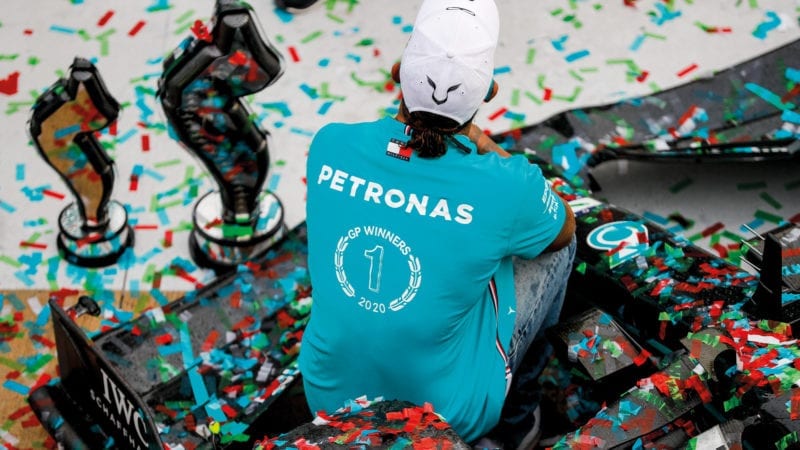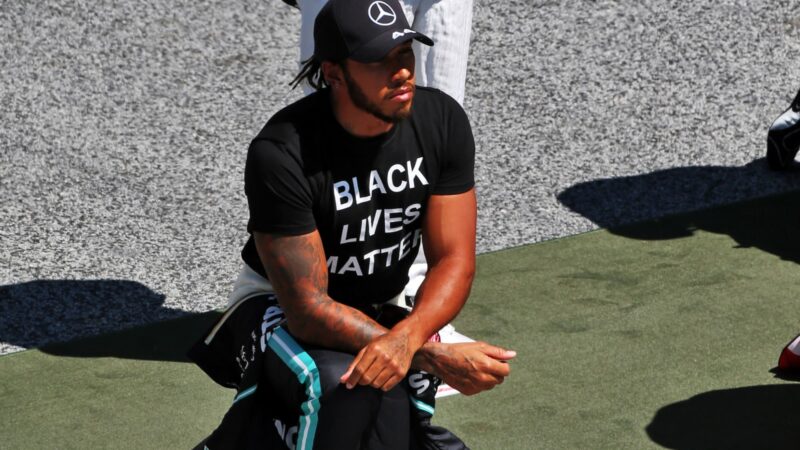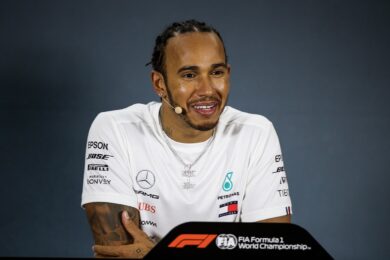Hamilton also commissioned sections on sustainability, focusing on the Extreme E series, which begins next March, and roping in James Allison, technical director of his Mercedes F1 team, to talk about F1’s planned use of sustainable fuels.
“The direction we’re going as a human race is not good,” he said. “What’s really important is acknowledging there is more that we can do. I’m trying to learn as much as I can with electric vehicle technology which I think Extreme E will help.”
Interviewed at the end of the programme, Hamilton acknowledged the human rights issues in countries that host grands prix. “I think there was a time when it was just a sport and it was just seen as just entertainment,” he said. “We do go to China, we do go to Russia. There are issues in so many countries, particularly with human rights.
“In terms of me personally, it’s a difficult line to walk. I can’t go to all these countries and try to change the countries by just by raising my voice. It’s working with groups that are already in those places and seeing how we can really try to enact positive change in those places.
“Some of that is raising awareness, Some of it is calling people out publicly. Some of that is working in the background with people who are in power”

Hamilton’s X44 team will race in the debut Extreme E season from next March
@ExtremeELive
Hamilton was also asked about comparisons that had been made between him and Muhammad Ali. “What I want to make sure is that my time here is not just about winning and human excellence in the sense of performance,” he said. “I would expect [people] would be talking about me differently to Muhammad Ali, my favourite athlete of all time. I hope that I’m able to have even one-tenth of the impact that he had.
“Winning is part of my DNA. I’ve always just been super-competitive. When the success comes, it’s a great feeling. I think this year has shown when you do have that success, what are you going to do with it?”



